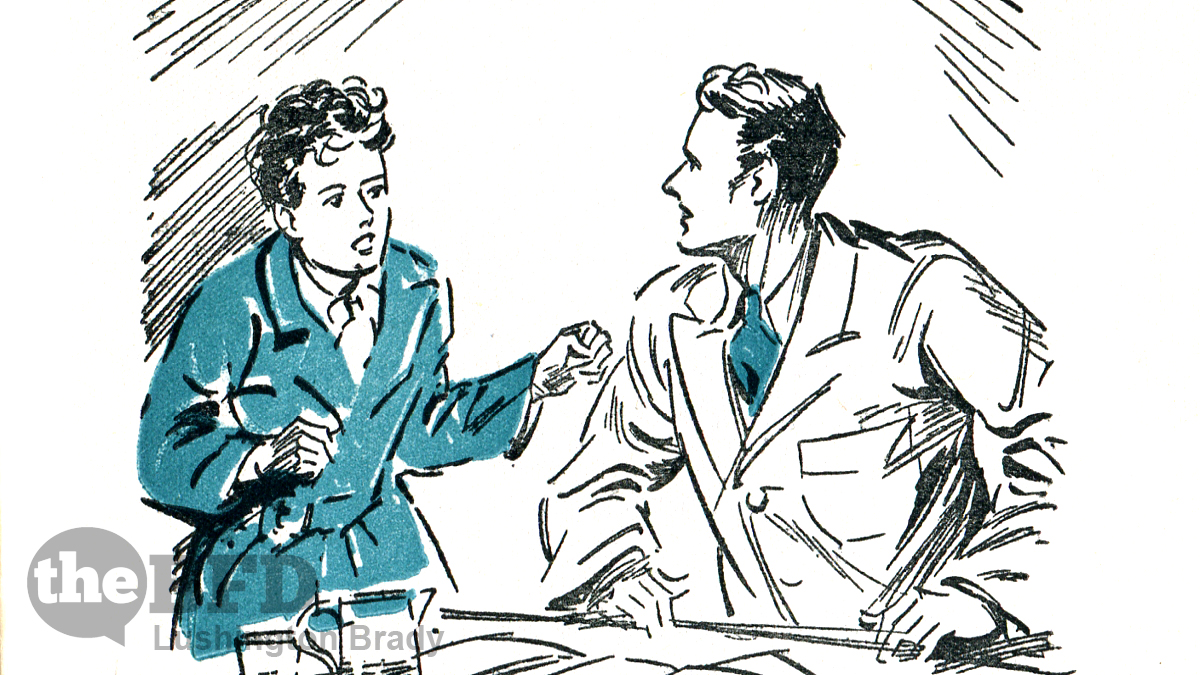Enid Blyton’s books were high on my childhood reading list. The now-tatty and much-loved Dean & Sons hardbacks are still on my bookshelves, less than a metre from where I write. The Faraway Tree and Wishing Chair books were some of the first novel-length narratives I read. The Children of Cherry-Tree Farm instilled a love of nature and rural life that persists to this day (and probably played no small part in my move to Tasmania, decades ago). Tales of Long Ago was my first introduction to the myths of Classical Greece and Arabia.
When my children were at primary school, their teacher read them The Wishing Chair stories, and I noticed a curious thing: one of the characters’ names had been changed. Chinky the pixie was now “Binky”. I was genuinely puzzled. Someone explained: “Chinky” sounds like an anti-Asian slur.
I went from puzzled to flabbergasted. Really? I’d read those books umpteen times, and never once thought, “Heh, heh, ‘Chinky’. She means Asians.”
Such a change says more about the mentality of the new inquisitors than it does about child readers.
If you can hear a dog-whistle, you must be the dog.
But not only are the gimlet-eyed razor-gangs dubbed “sensitivity readers” nasty-minded adults projecting their own insecurities and prejudices, they’re also demeaning and dismissive of child readers’ ability to think.
Why do Dick, Julian and “tomboy” George get to rappel into disused mine shafts and confront robbers who’ve hidden stolen jewels in a tree hollow while Anne stays back at the campsite and launders everyone’s pullovers?
Well, we all know why. It’s because Anne was created as a character in 1942, back when little ladies were expected to be helpmeets and handmaidens, neat and tidy, compliant and competent.
So do we stop listening? Do I tweet my outrage at this and demand that publisher Hachette change the books? No. No!
It’s about here that I feel a bit sorry for her kids.
Instead, I make much of my outrage. I groan and fix the kids in my rear-vision mirror gaze, and I say: “You know what I’d say if I were Anne? ‘Get stuffed, Dick. Wash up your own dishes!’ ”
The kids groan back and chortle. “Muuu-uuum!” And that’s today’s lesson: Feminism 101.
No, today’s lesson ought to be for Mum: the kids aren’t interested in your bullshit.
And they’re smart enough to know what’s up.
Taking my kids back to 1942 is a moment to teach them something about how the world has changed. I tell my daughter how lucky she is to be living today. I tell my son to never forget that girls are just as good as boys – at everything. And we get on with the story.
And the kids wish Mum would just shut the hell up and let them enjoy the story.
Somewhat ironically, our feminist mum who browbeats her kids about stories from 80 years ago, is outraged that modern publishers are taking the razor to them. Multiple instances of characters telling each other to “Shut up” and “Don’t be an idiot” have been expunged. Not just re-worded, cut entirely. As if even hearing, third-hand, someone being told to “shut up” is going to send the “I Am Special” generation scurrying for their safe spaces. “Don’t be an ass!” has also been chopped, as if no-one is capable of working out that an “ass” is a donkey.
She’s right, though, about the cowardice — the publishers never announced the censorship, apparently hoping it would go unnoticed — and nasty small-mindedness of such censorship. She’s also right that even slightly outdated books can teach kids important lessons.
What more engaging, what more magical tool to teach children history could there be than books?
In Charlie and the Chocolate Factory, my kids experience a description of grinding poverty – the first time this concept has come across their happy little minds […]
In Five Have a Puzzling Time they meet a child whose loneliness and fear manifest in risking his own life to save his dog.
The classic children’s books work for a reason – because the fairydust surrounds a core of truth.
Kids are up for the challenge. They want to know about the world. They are smarter and wiser than we might think.
The Australian
They’re wise enough that they need neither anonymous censors or browbeating feminist mums to tell them what to think.
Although it never occurred to me that “Chinky” might be a racial slur (it wasn’t), as a child I was perfectly capable of understanding that these were stories from another time and place. Which is why I raised a childish eyebrow at the Gollywog brothers of Tales of Toyland: Mr Golly, Mr Woggy and Mr Nigger. While there was clearly no malice on the author’s part, I clearly realised that that sort of stuff didn’t fly in polite company decades later.
I never fretted that Christmas stories featured snow, even though my Christmases were in the middle of summer. I knew that the 40s expectations of boys and girls were quaint and outdated even by the early 70s. The brutal corporal punishment regime of Dame Slap never traumatised me.
I knew perfectly well that these were glimpses of another world, every bit as much as the stories of the Argonauts or Sinbad. And that’s what made them so magical.
Bowdlerising them to “reflect modern audiences” only renders them as mundane and boringly didactic as a Gender Studies lecture.


